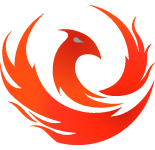
“Yesterday I did my first gym circuit session in over a year. I’m a regular gym user and yet, dear me, it hurt! It still does!”
We have all been there. Whether it’s been after a gym session, a night dancing, or after moving house; if you do something you are not used to you will feel muscle pain. But what about those times that our muscles are killing us without having done anything in particular?
To start with, there are many reasons behind muscular pain that are not related to the muscle itself. Pain can be due to a medical condition or a side-effect of medications. Viral and bacterial infections, such as the flu, thyroid problems, fibromyalgia, autoimmune disorders such as Polymyalgia Rheumatica and Multiple Sclerosis are just some examples. Medications or drugs, such as statins (to treat high cholesterol), ACE inhibitors (to treat high blood pressure) and cocaine can also cause muscular pain. Mineral deficiency, such as low potassium, may also have this effect.
Muscles can also hurt when the structures and tissues that work together with the muscle are affected. These structures are joints, ligaments, connective tissue, veins and nerves. For instance, if you have ever torn your anterior cruciate ligament (unfortunately I have), you will know just how sore your quads can be for weeks. Injury to a joint, even if the surrounding muscles haven’t been injured can lead to muscle spasm, and ouch, that hurts. Similarly, tightness of the fascia, the sheath of fibrous tissue that encloses each muscle and group of muscles, vascular problems, such as Deep Vein Thrombosis (DVT) or nerve damage and entrapment, such as sciatica, may cause pain or even severe muscle pain.
Another cause of muscle pain (unfortunately a very common one) is bad posture. We all know that; but why does that forward head and shoulder posture I adopt when working on the computer hurt? In this case, we can blame gravity. When our head is not sitting directly over our spine, the muscles of the upper back have to continually overwork to counterbalance the pull of gravity. After hours of sustaining this posture, our muscles get fatigued as they do after a gym session. If you have ever done isometric exercises – where you hold a static position (for example the plank) and you make your muscles work without moving – you know very well how hard that can be. If we are doing ‘isometric neck and shoulder exercise’ for eight hours a day, it’s not surprising those muscles will hurt.
A natural next question might be:“Why do my muscles hurt when I exercise?” Well, I’m glad you asked me that question. However, it is my intention to keep my posts short. I will talk about it in my next posts, “Is muscle ache after exercise really due to lactic acid?”
I hope you have enjoyed this post. If you want to leave a comment, please do; if you think your friends would enjoy it too, please share it!
 Phoenix Therapy Nottingham
Phoenix Therapy Nottingham
2 comments
Join the conversationCarme - 16th January 2017
Thank you for your post!
But what about the muscle cramp or just a foot cramp? Is it also related to bad posture or non frequent exercise? I usually have them when doing exercise, either hiking or swimming.
Regards,
carme.
Maria - 17th January 2017
Hi Carme,
Thanks for leaving your comment. That is a very interesting question and, actually, I was thinking of doing a post on cramps, as they are a recurrent question and concern among my patients.
Unfortunately, the mechanisms behind cramps are not well understood yet. It is known that dehydration and low levels of potassium, calcium and/or magnesium can cause them. However, studies have shown that they play a little role in cramps during exercise.
As you pointed, non-frequent exercise is one of the theories about causes of cramps, as it may place excessive strain on the muscles. However, cramps are often suffered by runners and other sports practitioners who are used to exercising. Lack of fitness, nevertheless, is one of the causes suggested.
A bad posture could also be related to cramps on the foot when you are hiking. It may happen if the footwear isn’t adequate for you, or if you have some injury in your leg – for example a pulled muscle – and you unconsciously walk in a ‘funny way’ to protect it/avoid pain.
Unfortunately (again), once a cramp strikes, you really only can do one thing: take a deep breath, stop, and stretch. Stretching has been shown to stop cramps because it inhibits muscle contraction. Once the pain has stopped, start slow and build your speed up.
If you think that some of the reasons mentioned may apply to you, it is a good start. If you would like more details about any of them or to ask further, please do, either through this post or by email.
I hope this is helpful. A post about it will be coming soon with more information.
Best wishes,
Maria